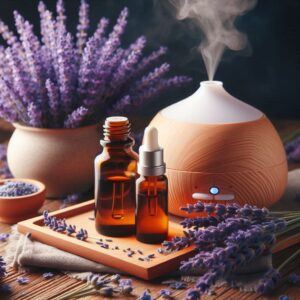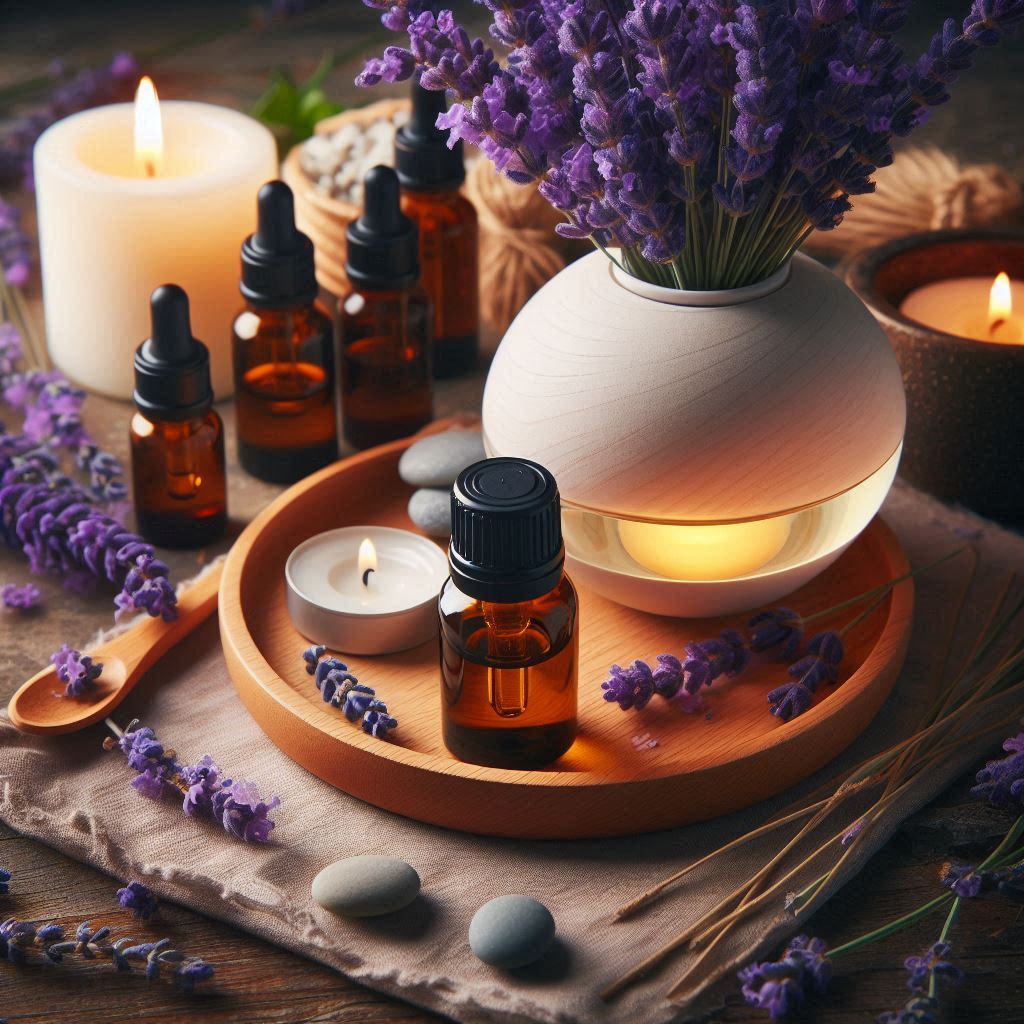A) Quick Ways to Relieve Anxiety
Anxiety affects millions of people worldwide, with the Anxiety and Depression Association of America (ADAA) estimating that 40 million adults in the United States alone suffer from an anxiety disorder. In today’s fast-paced world, finding quick and effective ways to manage anxiety is crucial. Here are some proven methods to help you calm down and regain control when anxiety strikes.
Distract Yourself
Engaging in small activities can help shift your focus away from anxious thoughts. This technique is often recommended by mental health professionals for its simplicity and effectiveness. According to the Priory Group, small things like leaving the room, going for a walk, or talking to someone can significantly reduce anxiety levels. These distractions help you break the cycle of anxious thinking and provide a temporary respite, allowing you to regain composure.
Reference: Priory Group. “How to Calm Anxiety.”
Practice Deep Breathing

Deep breathing exercises are a cornerstone of many relaxation techniques and for good reason. Research shows that deep breathing can activate the parasympathetic nervous system, which helps calm the body and reduce stress. PsychCentral suggests focusing on your breath to reduce anxiety quickly. Techniques such as the 4-7-8 breathing method, where you breathe in for 4 seconds, hold for 7 seconds, and exhale for 8 seconds, can be particularly effective.
Reference: PsychCentral. “How to Reduce Anxiety Quickly.”
Use Grounding Techniques
Grounding techniques help you stay present and divert your mind from anxious thoughts. One popular method is the 5-4-3-2-1 technique, which involves using your senses to focus on the present moment. For example, you can identify five things you can see, four things you can touch, three things you can hear, two things you can smell, and one thing you can taste. MD Anderson Cancer Center recommends these techniques as effective tools to manage stress and worry in the moment.
Reference: MD Anderson Cancer Center. “Anxiety Hacks: 7 Tools to Manage Stress and Worry in the Moment.“
Physical Activity

Physical activity is a well-documented way to reduce anxiety. Exercise releases endorphins, which are natural mood lifters. Even short bursts of physical activity, such as stretching, walking, or light exercise, can help release tension and improve your mood. According to the American Psychological Association (APA), regular physical activity can help you manage anxiety and stress.
Reference: American Psychological Association. “Exercise Fuels the Brain’s Stress Buffers.“
Listen to Music
Music has a powerful impact on our emotions. Listening to your favorite tunes can help you relax and reduce anxiety. Music therapy has been shown to decrease anxiety levels and improve overall mental health. PsychCentral highlights that soothing music can relax your mind and body, making it an effective tool for managing anxiety.
Reference: PsychCentral. “How to Reduce Anxiety Quickly.“
Visualization
Visualization techniques, such as imagining a peaceful place, can help reduce anxiety. These mental exercises shift your focus from stress to calmness. Visualization involves closing your eyes and picturing a serene scene, like a beach or a forest, and imagining yourself there. MD Anderson Cancer Center suggests using visualization as a tool to manage anxiety in the moment.
Reference: MD Anderson Cancer Center. “Anxiety Hacks: 7 Tools to Manage Stress and Worry in the Moment.“
Progressive Muscle Relaxation
Progressive muscle relaxation (PMR) is a technique that involves tensing and then slowly releasing each muscle group in the body. This method helps reduce physical tension and anxiety. A study published in the Journal of Behavioral Medicine found that PMR can significantly reduce anxiety levels. By focusing on the physical sensations, you can distract yourself from anxious thoughts and promote relaxation.
Reference: Journal of Behavioral Medicine. “Effect of Progressive Muscle Relaxation on Anxiety.”
Aromatherapy
Aromatherapy involves using essential oils to promote relaxation and reduce anxiety. Scents like lavender, chamomile, and bergamot are known for their calming properties. Research published in the journal Evidence-Based Complementary and Alternative Medicine suggests that aromatherapy can be an effective complementary therapy for anxiety.
Reference: Evidence-Based Complementary and Alternative Medicine. “Aromatherapy for Anxiety: Mechanisms and Efficacy.“
Mindfulness Meditation

Mindfulness meditation involves focusing on the present moment and accepting it without judgment. This practice has been shown to reduce anxiety and improve overall mental health. According to the National Center for Complementary and Integrative Health (NCCIH), mindfulness meditation can help individuals manage anxiety by promoting relaxation and reducing stress.
Reference: National Center for Complementary and Integrative Health. “Meditation: In Depth.“
Cognitive Behavioral Techniques
Cognitive Behavioral Therapy (CBT) techniques can help you change negative thought patterns that contribute to anxiety. Techniques such as cognitive restructuring, where you challenge and reframe negative thoughts, can be highly effective. A study published in the Journal of Anxiety Disorders found that CBT is one of the most effective treatments for anxiety disorders.
Reference: Journal of Anxiety Disorders. “Effectiveness of Cognitive Behavioral Therapy for Anxiety Disorders.“
Diet and Nutrition

What you eat can impact your anxiety levels. Consuming a balanced diet rich in whole foods, including fruits, vegetables, lean proteins, and whole grains, can help stabilize your mood. Avoiding excessive caffeine and sugar can also reduce anxiety. According to the Harvard Medical School, a healthy diet is crucial for maintaining mental health.
Reference: Harvard Medical School. “Nutritional Psychiatry: Your Brain on Food.“
Hydration
Dehydration can exacerbate anxiety. Ensuring you drink enough water throughout the day can help keep anxiety at bay. A study published in the World Journal of Psychiatry found that adequate hydration is linked to improved mental health and reduced anxiety.
Reference: World Journal of Psychiatry. “The Role of Hydration in Mental Health.“
Social Support
Connecting with friends and family can provide emotional support and reduce feelings of anxiety. Social interactions can help distract you from anxious thoughts and provide a sense of belonging. The APA emphasizes the importance of social support in managing stress and anxiety.
Reference: American Psychological Association. “The Importance of Social Support.“
Discover the Ultimate Guide to Relieving Anxiety Naturally – How to Transform Your Life!
B) Natural Ways Relieve Anxiety
Embracing natural ways to relieve anxiety can offer a holistic approach to managing stress without the need for medication. One effective method is practicing mindfulness meditation, which involves focusing on the present moment and accepting it without judgment. This technique has been shown to reduce anxiety by promoting relaxation and reducing stress hormones significantly. According to the National Center for Complementary and Integrative Health (NCCIH), mindfulness meditation helps individuals achieve a state of calm and mental clarity, making it an excellent tool for anxiety management.
Aromatherapy is another natural way to alleviate anxiety. Utilizing essential oils such as lavender, chamomile, and bergamot can create a soothing environment and promote relaxation. Research published in Evidence-Based Complementary and Alternative Medicine indicates that these scents can lower anxiety levels by interacting with the brain’s limbic system, which controls emotions. Incorporating aromatherapy into your daily routine, whether through diffusers, candles, or bath products, can provide a simple yet effective way to combat anxiety naturally. 
Additionally, maintaining a balanced diet rich in whole foods can have a profound impact on your mental health. Consuming foods high in antioxidants, omega-3 fatty acids, and vitamins can support brain function and reduce anxiety. Harvard Medical School emphasizes the importance of a nutritious diet in maintaining mental well-being, suggesting that foods such as leafy greens, nuts, and fatty fish can help stabilize mood and prevent anxiety. By integrating these natural strategies into your lifestyle, you can enhance your ability to manage anxiety and improve your overall quality of life.
Conclusion
Anxiety can be a challenging condition to manage, but these quick and effective techniques can help you regain control and calm your mind. By incorporating these strategies into your daily routine, you can reduce anxiety and improve your overall well-being. Remember, it’s essential to find what works best for you and seek professional help if anxiety becomes overwhelming.

